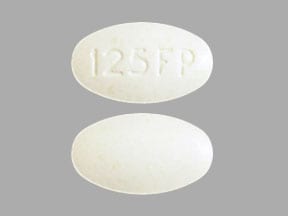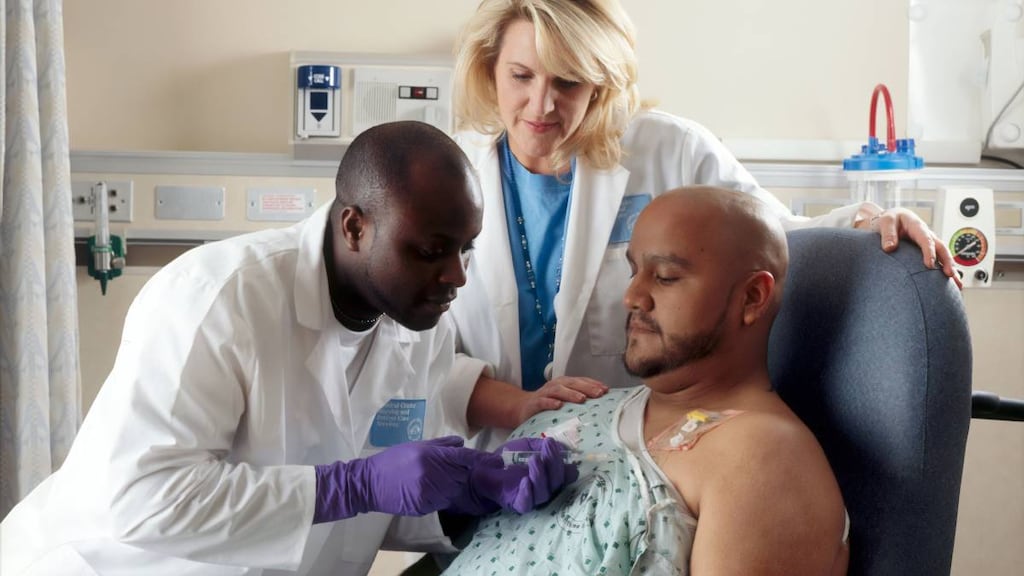What is Yonsa used for?
- Yonsa is used to treat prostate cancer.
- Yonsa may be given to you for other reasons. Talk to your doctor.
Before taking Yonsa, tell your doctor:
- If you are allergic to Yonsa; any part of this medicine; or any other drugs, foods, or substances. Tell your doctor about the allergy and what signs you had.
- If you have any of these health problems: Liver disease or low potassium levels.
- If you have high blood pressure.
- If you are getting radiation.
- If you are taking any of these drugs: Carbamazepine, phenobarbital, phenytoin, rifabutin, rifampin, rifapentine, or St. John's wort.
- If you are a woman. This medicine is not approved for use in women. This medicine may cause harm to an unborn baby or loss of an unborn baby if it is taken during pregnancy. If you are a woman using Yonsa, talk with your doctor if you are pregnant, plan on getting pregnant, or are breast-feeding.
This is not a list of all drugs or health problems that interact with this medicine.
Tell your doctor and pharmacist about all of your drugs (prescription or OTC, natural products, vitamins) and health problems. You must check to make sure that it is safe for you to take Yonsa with all of your drugs and health problems. Do not start, stop, or change the dose of any drug without checking with your doctor.
What are some things I need to know or do while I take Yonsa?
- Tell all of your health care providers that you take Yonsa. This includes your doctors, nurses, pharmacists, and dentists.
- Have blood work checked as you have been told by the doctor. Talk with the doctor.
- High blood pressure has happened with Yonsa. Have your blood pressure checked as you have been told by your doctor.
- This medicine may cause high cholesterol and triglyceride levels. Talk with the doctor.
- This medicine may affect being able to father a child. Talk with the doctor.
- Men with a partner who may get pregnant must use birth control while taking Yonsa and for some time after the last dose. Ask your doctor how long to use birth control. If your partner gets pregnant, call the doctor right away.
- If you are a man and your sex partner is pregnant, use a condom during treatment with Yonsa. You may also need to use a condom for some time after your last dose. Talk with your doctor to see if you need to use a condom after your last dose.
How is Yonsa best taken?
Use Yonsa as ordered by your doctor. Read all information given to you. Follow all instructions closely.
- Take with or without food.
- This medicine is taken with a steroid drug like prednisone. Take the steroid drug with Yonsa as you have been told by your doctor.
- Take with a full glass of water.
- Swallow whole. Do not chew, break, or crush.
- Keep taking Yonsa as you have been told by your doctor or other health care provider, even if you feel well.
- Do not let women who are pregnant or who may get pregnant touch the tablets without wearing gloves.
What do I do if I miss a dose?
- If you miss a dose, wait until the next day to take your normal dose.
- Do not take 2 doses at the same time or extra doses.
- If you miss 2 doses, call your doctor.
What are the side effects of Yonsa that I need to call my doctor about immediately?
WARNING/CAUTION: Even though it may be rare, some people may have very bad and sometimes deadly side effects when taking a drug. Tell your doctor or get medical help right away if you have any of the following signs or symptoms that may be related to a very bad side effect:
- Signs of an allergic reaction, like rash; hives; itching; red, swollen, blistered, or peeling skin with or without fever; wheezing; tightness in the chest or throat; trouble breathing, swallowing, or talking; unusual hoarseness; or swelling of the mouth, face, lips, tongue, or throat.
- Signs of electrolyte problems like mood changes, confusion, muscle pain or weakness, a heartbeat that does not feel normal, seizures, not hungry, or very bad upset stomach or throwing up.
- Signs of high blood pressure like very bad headache or dizziness, passing out, or change in eyesight.
- Signs of a weak adrenal gland like a very bad upset stomach or throwing up, very bad dizziness or passing out, muscle weakness, feeling very tired, mood changes, not hungry, or weight loss.
- Signs of a urinary tract infection (UTI) like blood in the urine, burning or pain when passing urine, feeling the need to pass urine often or right away, fever, lower stomach pain, or pelvic pain.
- Signs of high blood sugar like confusion, feeling sleepy, more thirst, more hungry, passing urine more often, flushing, fast breathing, or breath that smells like fruit.
- Fast or abnormal heartbeat.
- Feeling very tired or weak.
- Bruising.
- Bone pain.
- This medicine may cause you to swell or keep fluid in your body. Tell your doctor if you have swelling, weight gain, or trouble breathing.
- Very bad and sometimes deadly liver problems have happened with Yonsa. Call your doctor right away if you have signs of liver problems like dark urine, feeling tired, not hungry, upset stomach or stomach pain, light-colored stools, throwing up, or yellow skin or eyes.
What are some other side effects of Yonsa?
All drugs may cause side effects. However, many people have no side effects or only have minor side effects. Call your doctor or get medical help if any of these side effects or any other side effects bother you or do not go away:
- Flushing.
- Muscle pain.
- Joint pain or swelling.
- Heartburn.
- Cough.
- Upset stomach or throwing up.
- Diarrhea or constipation.
- Feeling tired or weak.
- Headache.
- Signs of a common cold.
- Nose or throat irritation.
- Trouble sleeping.
These are not all of the side effects that may occur. If you have questions about side effects, call your doctor. Call your doctor for medical advice about side effects.
You may report side effects to the FDA at 1-800-332-1088. You may also report side effects at https://www.fda.gov/medwatch.
If overdose is suspected:
If you think there has been an overdose, call your poison control center or get medical care right away. Be ready to tell or show what was taken, how much, and when it happened.
Yonsa Images
How do I store and/or throw out Yonsa?
- Store at room temperature.
- Store in a dry place. Do not store in a bathroom.
- Keep all drugs in a safe place. Keep all drugs out of the reach of children and pets.
- Throw away unused or expired drugs. Do not flush down a toilet or pour down a drain unless you are told to do so. Check with your pharmacist if you have questions about the best way to throw out drugs. There may be drug take-back programs in your area.
Consumer information use and disclaimer
- If your symptoms or health problems do not get better or if they become worse, call your doctor.
- Do not share your drugs with others and do not take anyone else's drugs.
- Some drugs may have another patient information leaflet. Check with your pharmacist. If you have any questions about Yonsa, please talk with your doctor, nurse, pharmacist, or other health care provider.
- If you think there has been an overdose, call your poison control center or get medical care right away. Be ready to tell or show what was taken, how much, and when it happened.
This information should not be used to decide whether or not to take Yonsa or any other medicine. Only the healthcare provider has the knowledge and training to decide which medicines are right for a specific patient. This information does not endorse any medicine as safe, effective, or approved for treating any patient or health condition. This is only a brief summary of general information about this medicine. It does NOT include all information about the possible uses, directions, warnings, precautions, interactions, adverse effects, or risks that may apply to Yonsa. This information is not specific medical advice and does not replace information you receive from the healthcare provider. You must talk with the healthcare provider for complete information about the risks and benefits of using this medicine.





